World Accreditation Day 2016: A Global Tool to Support Public Policy
Accreditation: A Global Tool to Support Public Policy
Annually on June 9, the American National Standards Institute (ANSI) and the ANSI National Accreditation Board (ANAB) will join accreditation organizations worldwide to recognize World Accreditation Day (WAD). Established by the International Accreditation Forum (IAF) and the International Laboratory Accreditation Cooperative (ILAC), WAD highlights the important role of accreditation around the globe.
The 2016 theme is Accreditation: A Global Tool to Support Public Policy.
Increasingly, federal, state, and local authorities rely upon accreditation to demonstrate value and assure competency for important public policy priorities. Government entities look to the ANAB to provide accreditation programs that improve industry practices and they look to the American National Standards Institute (ANSI) to distinguish quality standards development programs. Standards development and conformity assessment supply voluntary, market-based tools that are valuable in the efficient implementation of public policy objectives.
Standards Development
One of the best examples of public sector confidence in ANSI’s accreditation of standards developers and the American National Standard designation is the National Technology Transfer and Advancement Act of 1995 (NTTAA), which requires all federal government agencies to use, wherever feasible, standards developed or adopted by voluntary consensus standards bodies in lieu of developing government-unique standards or regulations. The Office of Management and Budget (OMB) Circular A-119, “Federal Participation in the Development and Use of Voluntary Consensus Standards and in Conformity Assessment Activities,” explains that voluntary consensus standards help the government by:
- Increasing operational efficiency
- Reducing regulatory compliance and procurement costs
- Avoiding duplication of effort caused by having separate private sector and government-unique solutions
- Enabling the government to take advantage of private sector technology and expertise in establishing standards that serve national needs, and
- Contributing to economic prosperity and growth.
“Standards facilitate trade, simplify transactions, and enable us to work together toward greater common goals that cut across disciplines and borders. Standards support the global economy and improve quality of life. But more than that, they provide the world a common language that gives people the power to explore new ideas in new ways and to make the most of innovations made in research laboratories around the world.”
– Willie E. May, Under Secretary of Commerce for Standards and Technology and Director of the National Institute of Standards and Technology, 2015
Conformity Assessment
OMB Circular A-119 also directs federal agencies to consider the use of international conformity assessment systems and private sector conformity assessment mechanisms in lieu of or in conjunction with government conformity assessment procedures, in light of the demands of an increasingly globalized marketplace.
For example, the United States government relies upon ANAB as an accreditor of product certification bodies under the international standard ISO/IEC 17065 for:
- Telecommunications and Radio Equipment
- EPA Energy Star®
- EPA WaterSense
- Health Information Technology
“The FCC has established a third-party certification program using entities known as Telecommunication Certification Bodies for the approval of radio frequency devices. The success of this program is in large part due to the use of product certification accreditation programs. The rapid growth of products which use the radio frequency spectrum has resulted in a very large number of products that need to demonstrate compliance with regulatory and technical standards established by the FCC and other regulatory agencies. At the same time the consumer demand for constant innovation and fast introduction of new capabilities have led to short product introduction times. This requires that product approval times have to be measured in days rather than months. The FCC approach of a balance between specific technical standards and allowing appropriately qualified third-party certification bodies has led to a successful model.”
– William Hurst, Technical Research Branch Chief, Laboratory Division, Federal Communications Commission (FCC)
And when it comes to personnel, the Occupational Safety and Health Administration (OSHA) and four state governments recognize ANAB as an accreditor for crane operator (personnel) certification programs under the international standard ISO/IEC 17024. Twenty-six states have adopted food protection manager certification requirements, which ANAB accredits under an agreement with the Conference for Food Protection. Six states, and some local jurisdictions, require food handlers to have a food-handler training certificate from an ANAB-accredited certificate program.
Accreditation as a greenhouse gas validation and/or verification body under the international standard ISO 14065 by an IAF MLA Signatory such as ANAB provides recognition from various governmental entities, including the Canadian provinces of British Columbia, Nova Scotia, Ontario, and Quebec.
The benefits of accredited conformity assessment activities to governmental entities are summarized in OMB Circular A-119: “When properly conducted, conformity assessments conducted by private sector conformity assessment bodies can increase productivity and efficiency in government and industry, expand opportunities for international trade, conserve resources, improve health and safety, and protect the environment.”
